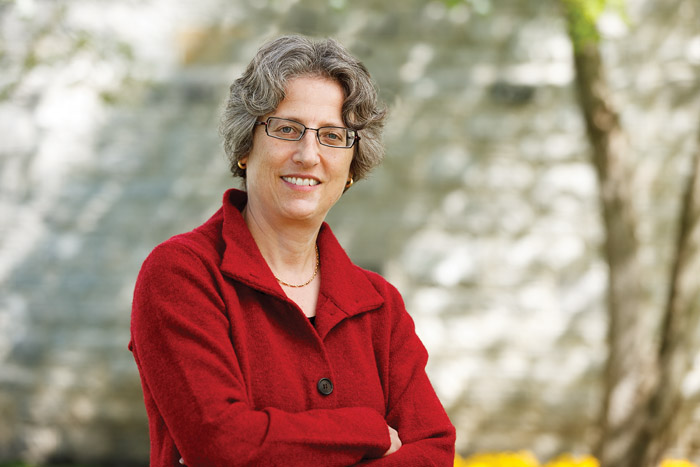Tools to Engage the World

by Nancy A. Roseman, president
This June, I attended my first Dickinson Alumni Weekend. It was a wonderful opportunity to meet alumni from across the decades, all having experienced Dickinson at different points in its evolution. Among the many constants — from those celebrating their 50th reunion to those celebrating their fifth — was a deep affection for Dickinson, and for one another.
The first Dickinsonian I met in a long receiving line on a stellar afternoon outside the Stern Center for Global Education clearly had thought carefully about what he would share with me in the few minutes we had together. He warmly welcomed me and quickly told me how Dickinson had shaped his life. The structure of this encounter was repeated as each person after him sought to give me a glimpse of why they loved Dickinson so much, how much it had affected their lives and created opportunities for them and why they were counting on me to be a good steward of their beloved college.
That very first conversation among hundreds has stayed with me. It was an intensely related account of how the skills he had developed at Dickinson while studying foreign languages and cultures had opened a career path that otherwise would not have been possible. He wanted me to fully appreciate how well Dickinson had prepared him for his future, personally and professionally. This theme, about the impact of language and cultural competency in our alumni’s lives, was repeated as the long line of well-wishers had their say.
Dickinson provides a rigorous intellectual environment, with our language requirement being one of many impressive examples. The foreign-language program, combined with our global-studies initiatives and study-abroad programs, is a great strength of the college. Students in our foreign-language program, whether they are majors or simply fulfilling our language requirement — and by the way, over 60 percent of our students go beyond our requirement and take additional coursework — are developing not only language skills but also an appreciation and deep understanding of the associated culture. In fact, cultural competency, being able to navigate outside one’s comfort zone, is one of the greatest skills we can instill in our Dickinsonians, particularly in a world increasingly without borders.
A query to our language faculty on my behalf resulted in a chorus of faculty members proudly describing their curriculum and students’ accomplishments. Many pointed to their collaborative work with colleagues from other disciplines at the college. A deep culture of collaboration among our -faculty is a constant source of new ideas and opportunities for our students. In fact, we pride ourselves on teaching in a way that connects the dots between seemingly disparate fields. This kind of synthetic thinking and doing is part of the power of a liberal-arts education, but ours is a distinctively Dickinsonian approach. Where else would a student majoring in Russian studies be able to assist our earth scientists in monitoring and studying a recent volcanic eruption in Russia?
Published October 28, 2013